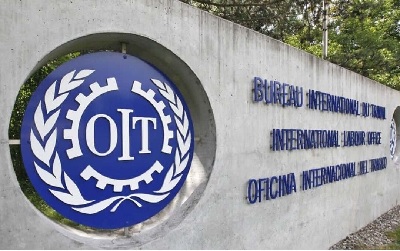
12-10-2023 | Noticias-en
The “Federal Cybersecurity Law” initiative presented by deputy Javier Joaquín López Casarín in April 2023, proposes the creation of a legal and operational framework for new cybersecurity authorities and the definition of crimes, homologated with those provided for in the Budapest Convention .
The Budapest Convention of the Council of Europe of 2001 aims to establish an international legal framework for cooperation on cybercrime. Mexico only has the status of observer country, since it has not ratified the Convention. The States Parties must implement two specific issues: i) Classification of crimes related to cybersecurity and ii) Give the competent authorities tools and powers to investigate and punish the commission of these crimes.
In this sense, the bill proposes the creation of new crimes and institutions such as the “National Cybersecurity Agency” and a prosecutor’s office specialized in cybercrimes. In addition, it grants powers in cybersecurity to the Secretariat of National Defense and the Secretariat of the Navy, and proposes the appointment of judges specialized in this area.
The bill also establishes obligations for individuals, among others, the notification of cybersecurity incidents, the presence of a legal representative in Mexico, and creating response units for cybersecurity incidents.
This initiative is currently in the Chamber of Deputies in the United Commissions on Citizen Security, and Science, Technology and Innovation for an opinion. Therefore, if a favorable opinion is obtained, it could be discussed in the Chamber of Deputies in the current period of sessions that runs from September 1 to December 15. Likewise, civil society and private industry have expressed concerns about the possible human rights violations that its implementation could generate. The proposed law would substantially modify the legal framework for authorities and private individuals, so its discussion must be closely followed. The information technology and data protection area is at your service.
For more information contact:

Juan José López de Silanes | Partner Basham, Ringe and Correa | lopez_de_silanes@basham.com.mx

11-10-2023 | media-en
The Third Collegiate Labor Court of the Seventeenth Circuit recently issued a jurisprudence that establishes the importance of the principle of primacy of reality in labor trials when an employer alleges that a worker submitted a resignation to him. This jurisprudence establishes that labor courts must analyze the plausibility of the resignation, taking into account the particular characteristics of the case and the personal conditions of the worker to determine whether the resignation is valid or not.
The principle of primacy of reality implies that, in the event of a conflict between what is established in a document and what actually happens in practice, priority must be given to what happens in reality. In the labor field, this means that, if there is a resignation presented by the worker to the employer, but it is suspected that it was forced or does not reflect his true will, the labor court must analyze the situation based on the reality of the facts and the personal conditions of said worker to determine whether the resignation is valid or not.
The jurisprudence issued establishes that labor courts must take into account the particular characteristics of the case and the personal conditions of the worker, such as seniority, position, age, training, financial solvency and severance payment, to determine the probative value of the claim. resignation.
The foregoing is based on the third paragraph of article 17 of the Constitution and article 841 of the Federal Labor Law, which establish the obligation of labor courts to issue their rulings based on known truth and good faith, without the need to be subject to formalities. or rules in relation to the evidence provided by the parties, but always expressing the reasons and legal foundations on which they are based, being clear and consistent with the claims that are deduced in the trial.
For this reason, companies must pay special attention when receiving a resignation from a worker, ensuring that it reflects the will, autonomy and spontaneity of said worker when preparing the document since, if the labor courts do not find the waiver credible with the particular characteristics of the case, they will consider it lacking validity.
For more information contact:

Juan José López de Silanes | Partner Basham, Ringe and Correa | lopez_de_silanes@basham.com.mx

11-07-2023 | Noticias-en
The Investigative Authority of the Federal Economic Competition Commission (“COFECE”) published on July 3, 2023 the notice of initiation of an investigation for a complaint for the possible performance of related monopolistic practices with file number DE-023-2023, in the market for the development, marketing and sale of digital goods and/or services, as well as related services in the national territory.
In this regard, COFECE noted that this investigation focuses on products such as electronic books, software, video games, photographs, music, and online movies, among others. These digital goods and services are created by developers and marketed to end users through various channels. In addition, COFECE indicated that it will analyze the negotiation and payment processing mechanisms associated with these transactions. In this regard, he pointed out that, in 2021, video game sales in the country increased by 24% compared to the previous year, while digital book sales grew by 35% and digital photo and video sales by 19%.
In this investigation, COFECE may request information in writing, carry out verification visits, as well as summon economic agents that participate in or are related to said market to testify. Pursuant to the Federal Law on Economic Competition (“LFCE”), there is an obligation for economic agents that are requested and visited to cooperate and submit the information requested to COFECE.
The purpose of publishing said investigation is to provide any economic agent with an interest in it, the opportunity to contribute and express what is appropriate to their right in relation to the investigated conduct or circumstances that may be contrary to the LFCE. Therefore, any person or company that considers that it has an affectation in the investigated market will have the opportunity to manifest it before COFECE.
For more information contact:

Juan José López de Silanes | Partner Basham, Ringe and Correa | lopez_de_silanes@basham.com.mx

26-04-2023 | Noticias-en
In the coming days, the Chamber of Deputies will analyze the reform project to the Social Security Law in which the obligation to use and implement the IMSS Mailbox is imposed on employers.
In this reform it is proposed that employers register their means of contact so that, through the IMSS Mailbox, the Mexican Institute of Social Security (IMSS) makes notifications of various documents such as: notices, administrative resolutions, settlement certificates and transmission of digital documents , among others.
Likewise, it is proposed that for those who do not update their means of contact or manifest their data in an erroneous way, the notifications that the IMSS practices will be through podiums.
Finally, for the operation of the IMSS Mailbox, the rules provided for in the Federal Fiscal Code will be applied, in addition, to notify documents or initiate procedures that are not provided for in the Social Security Law.
For more information contact:

Juan José López de Silanes | Partner Basham, Ringe and Correa | lopez_de_silanes@basham.com.mx

13-04-2022 | Noticias-en
On March 15, 2022, the Chamber of Senators ratified Convention 190 of the International Labor Organization (“ILO”) 190 on workplace violence and harassment, which aims to force employers to establish preventive and disciplinary measures to eradicate any type of physical and/or psychosocial violence that workers may suffer for the provision of their services.
The most relevant points of the Agreement are:
An inclusive approach, with a gender perspective;
Global definitions regarding violence, harassment and discrimination based on gender issues;
Control of the application of sanctions, means of prevention against acts of violence and repair of damages; y
Sensitization to the problem of workplace violence and harassment;
The Convention will be deposited with the ILO and once its general director registers it, it will enter into force the following year as a Mexican regulatory framework and must be published by decree in the Official Gazette of the Federation.
The purpose of the Agreement is to counter negative attitudes and behaviors for the free development of the person within the workplace. Companies will have to create or update their policies, protocols and mechanisms to develop a harmonious environment free of violence and harassment.
Currently, within the Mexican laws and regulations, there are already some current obligations that attend to the content of said Agreement, among which the following stand out:
The elaboration of a protocol in conjunction with the workers, for the prevention of discriminatory acts for reasons of gender, violence, harassment or sexual harassment, based on the Federal Labor Law in its article 132 section XXXI; and
The development of a policy and mechanisms for the prevention, monitoring and application of sanctions, based on the Official Mexican Standard NOM-035-STPS-2018, Psychosocial risk factors at work-Identification, analysis and prevention (“NOM035”) , which focuses on:
a) The prevention of psychosocial risk factors;
b) The prevention of workplace violence; Y
c) The promotion of a favorable organizational environment.
The Ministry of Labor and Social Welfare, through the federal labor inspection department, must ensure that said measures and obligations are applied in the work centers. In the event that the Secretariat, through the federal labor inspection directorate, finds irregularities and/or notices any type of non-compliance with respect to said provisions, it may impose fines that may vary from 50 to 5,000 UMAS for each possible non-compliance attributable to the employer, which is equivalent to an amount of $4,811.00 up to $481,100.00 pesos. It is important to note that the aforementioned amounts may increase depending on the number of breaches or omissions that can be detected.
In order to be prepared to comply with ILO Convention 190, we recommend that companies begin to observe the obligations in this same sense. We suggest starting with a list of obligations and compliances in order to determine the company’s current degree of compliance.






